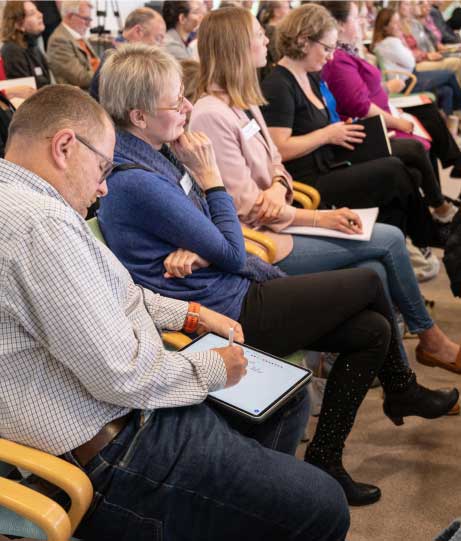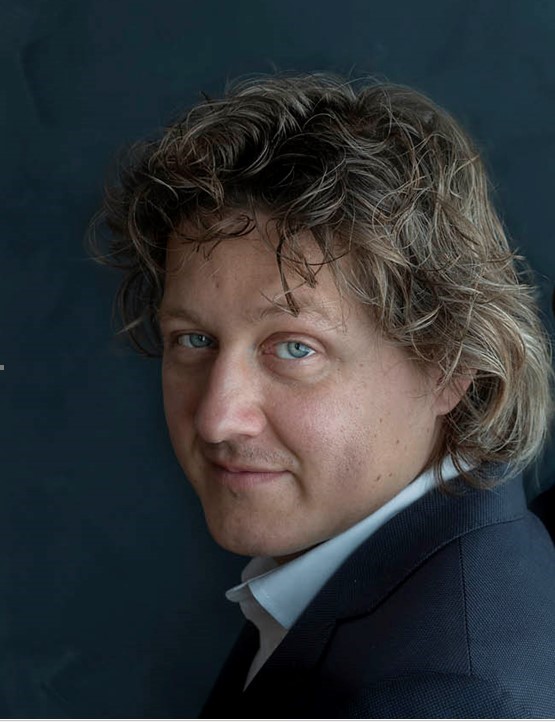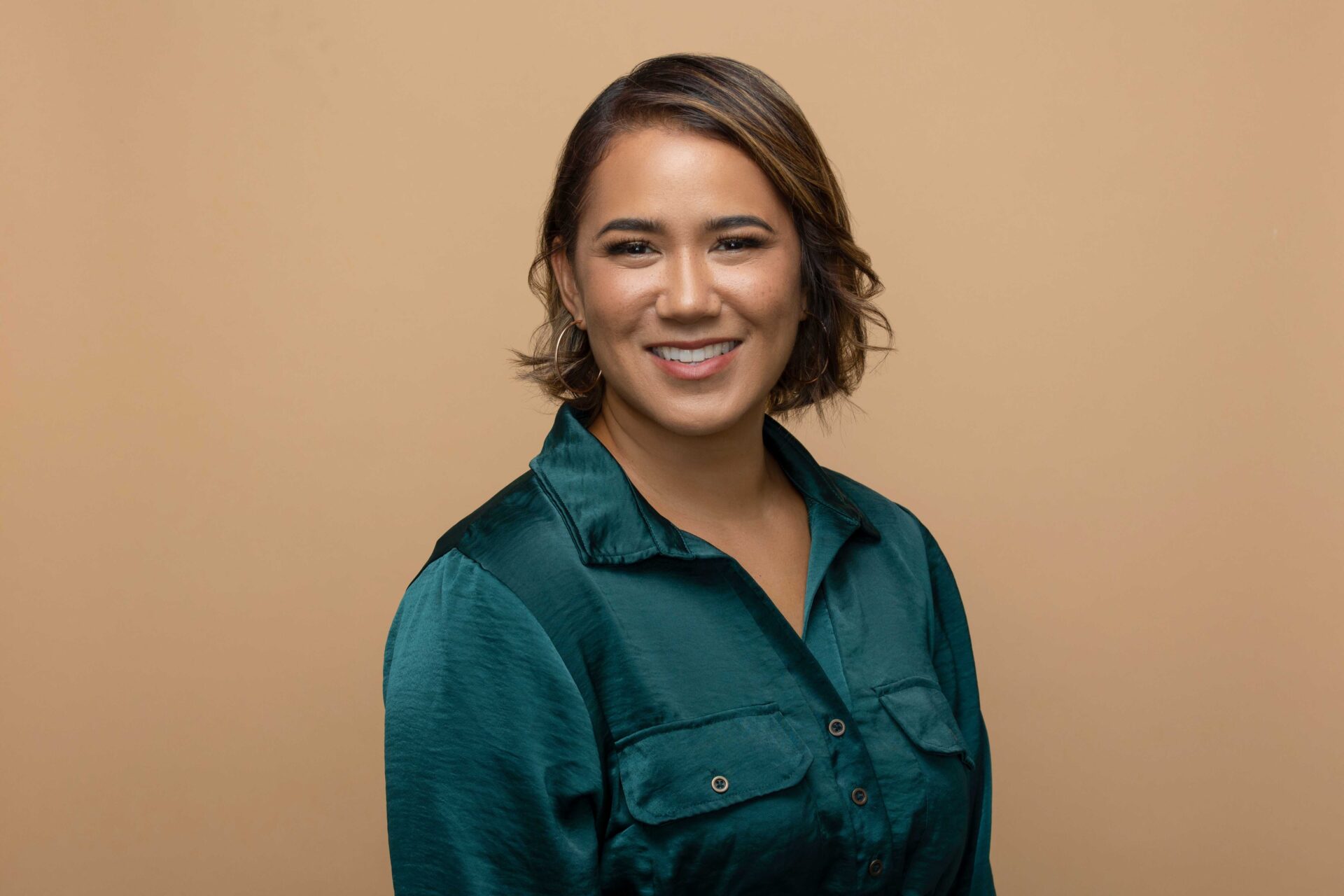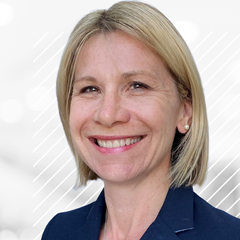Join us at our 2024 conference where we will explore the dynamic interplay between global perspectives and local actions in the field of Organisational Development (OD). In today’s interconnected world, organisations are increasingly navigating complex global challenges while also attending to the unique needs and contexts of their local communities.
This conference offers an opportunity to engage with thought leaders, practitioners and fellow OD professionals to exchange insights, share best practices and co-create innovative solutions. Whether you’re seeking to expand your global mindset, enhance your local impact or simply connect with like-minded individuals, this event promises to inspire and empower you on your OD journey. Join us as we explore how to think globally and act locally to drive positive change in organisations and communities worldwide.
Join us at our OD Conference on 24-25 October 2024
At Roffey Park Institute, we specialise in empowering organisations to thrive in the ever-evolving landscape of today’s business world. As an Organisational Development specialist organisation, we understand that the success of any enterprise hinges not only on its products or services but also on the strength of its internal structure, culture, and people. Whether your organisation is facing challenges related to change management, leadership development, team effectiveness or cultural transformation, we are here to help. Our approach is collaborative, data-driven and results-oriented, ensuring that our solutions are not only impactful but also aligned with your unique goals and objectives.

Our 2024 OD Conference will take place on 24-25 October at Roffey Park Institute and we’re finalising the details of an exciting programme which includes:
- International keynote speakers
- Practical workshops
- Space and time for learning and networking with practising OD professionals
Key note speakers
Inclusive Leadership Navigating Organisational Complexity
Are you tired of inclusive leadership being treated as just another tick-box exercise?
Are you ready to leverage it as a transformative force within your leadership and organisation?
Beyond the conventional, exploring how inclusive leadership can be our most potent tool in navigating organisational complexity, enhancing performance, and driving sustainable excellence. Inclusive Leadership Navigating Organisational Complexity is not about adding to your workload; it’s about enriching your approach to leadership for more effective outcomes. Sile Walsh invites us to shift our paradigm from viewing inclusion as an extra task to integrating it as a core principle of our leadership practice. This shift is not just beneficial—it’s essential for thriving in today’s complex organisational landscapes.
Building the Software for Collective Impact
There is a growing recognition that the global challenges of the twenty-first century necessitate a localised response to reflect the specific socio-economic and demographic circumstances of each locality. In his talk, Rob will set out how his practice and evidence based Place-Based Leadership Development (P-BLD) initiatives develop collective leadership capability for problem solving across different places in the Global South and North. Rob will demonstrate how working with the intangible ‘software’ of relationship-building facilitates the emergence of a better understanding between local actors and a more open and innovative mindset towards trying out innovative solutions. Finally, he will also show how designing in continuous review and impact evaluation from the outset is key to demonstrating considerable impact at individual, inter-agency and place-based levels during and beyond the life of the programmes.
Reimagining Organisational Development: Navigating Contemporary Challenges through Global Unity and Local Action
OD is facing several contemporary threats that challenges its effectiveness and relevance. These threats stem from rapid technological advancements like AI, remote and hybrid work, OD less being taught at universities and organisational need for rapid organisational changes etc. A lack of growing membership in different organisational bodies could be seen as a soft signal that the field might be in the trouble. Given these threats, it’s interesting that the field does not rally together more globally but remains based in a plethora of local professional bodies. Using Bartlett & Ghoshal’s model of international strategies, we can look to several options of what this field could be like, what is preventing it to move into these different strategies and what could be first steps towards thinking global and acting local.
Localizing Organisational Change in Cultural Values
What can we learn from indigenous culture about our perspectives on organisational change? How can we as organisational development practitioners apply these cultural values and knowledge in the work we do? In this interactive session, Native Hawaiian practitioner Ku’ulani Keohokalole will share insights and stories from effectively doing organisational change work in “non-traditional” ways, informed by cultural values. The talk will give specific examples from Hawaiʻi, whilst extrapolating those values to ways that a global audience can OD work they do, no matter where they are located.
Local vs global approaches: What you can learn from other organisations’ struggles
Today’s organisations are increasingly grappling with local vs global challenges. From a complex web of stakeholder funding, a business model disrupted by competitors’ technology or poisonous cultures rooted in outdated hierarchies, tension exists between empowering those closest to the customer and the efficiency benefits of standardisation and centralisation.
In this enlightening interactive session, we’ll be sharing our observations and insights from working with clients across many sectors and industries from large global enterprises to small local charities and invite you to predict the outcomes!
Please note speakers are subject to change
Conference MD

Neil Mullarkey
Neil Mullarkey will be our Conference MC and will also lead a fun energiser workshop to kick off our second day. This will be an interactive session where Neil will show you how the skills of improv theatre are readily applicable to every day life – not so much thinking on your feet as listening on your feet – but helping your creativity, collaboration and leadership skills.
Agenda
08:30
Arrival & check-in
09:15
Opening remarks
09:30
Keynote Speaker: Ku’ulani Keohokalole
10:30
Networking & Comfort Break
11:00
Workshop Sessions
11:45
Networking & Comfort Break
12:15
Workshop Sessions
13:00
Lunch & Networking
14:30
Keynote Speaker: Rob Worrall
15:30
Networking & Comfort Break
16:00
Keynote Speaker: Jesse Segers
17:00
Closing remarks
19:00
Welcome drinks
19:30
Conference Celebration Dinner
09:00
Welcome
09:15
Keynote Speaker: Neil Mullarkey
10:00
Comfort Break
10:15
Keynote Speaker: Sile Walsh
11:15
Networking & Comfort Break
11:45
Keynote Speaker: Emma Du Parcq
12:45
Lunch & Networking
13:45
Open Space & closing remarks
14:30
End of Conference
Fees
Residential fees include conference place as well as tea/coffee, meals and accommodation.
Non-residential fees are exclusive of accommodation, breakfast and celebration dinner. The Celebration Dinner is available at an additional cost of £60 +VAT per person.
Conference Fee
Residential Fee
£1,210 +VAT per person
Residential Fee including networking dinner and accommodation the night before
£1,410 +VAT per person
Non-Residential Fee
£1,050 +VAT per person
Discounted Fee*
Residential Fee
£1,045 +VAT per person
Residential Fee including networking dinner and accommodation the night before
£1,175+VAT
Non-Residential Fee
£760 +VAT per person
Please note tickets are non refundable
*For Roffey Park MSc Alumni, MSc Students and Associates
Why choose Roffey Park’s OD Conference?
Roffey Park Institute is a centre of expertise in organisational development and a pioneer of action learning for over 75 years. For the last thirty years, our MSc in People and Organisational Development has been at the forefront of developing the practice and field of OD. We are the home of people and organisational development.
As an educational charity our research aims to challenge perspectives and practices to enable people and organisations to realise our potential. All conference fee revenue will be transferred to the Val Hammond Research Fund. The fund, set up in recognition of our former Chair and CEO, cements Roffey Park’s commitment to applied management research through expanding the diversity and reach of thinking aimed at improving the world of work.
By attending the conference, you will be actively contributing towards future research in improving the world of work for all.

Do you want to showcase your project, research or organisational change project? If you’re interested in speaking at our conference, please submit a proposal for a 45 minute workshop session.
Your proposal should include:
- Title of your session
- Name of Facilitators and affiliation
- Brief session outline (max 100 words)
- Information about how the session will be facilitated and what attendees will gain from participating
- Your contact details (phone and email
We only have a limited number of places available and priority will be given to our MSc Alumni and Associate community. Deadline for proposal submission is 31 July at 5pm (UK time), to be submitted via email .
If successful a conference ticket will need to be purchased to attend the whole conference due to limited availability and proceeds going to research. If you would prefer to hold your workshop, join for lunch and then leave a conference ticket is not needed.
The Venue
Roffey Park Institute is our purpose-built dedicated training, events and conference venue which is set in 40 acres of rural Sussex Countryside just five minutes from the M23 and 20 minutes from London Gatwick Airport. With 60 bedrooms, comfortable surroundings, natural daylight, access to acres of space and first-class hospitality you can relax and enjoy the conference.







